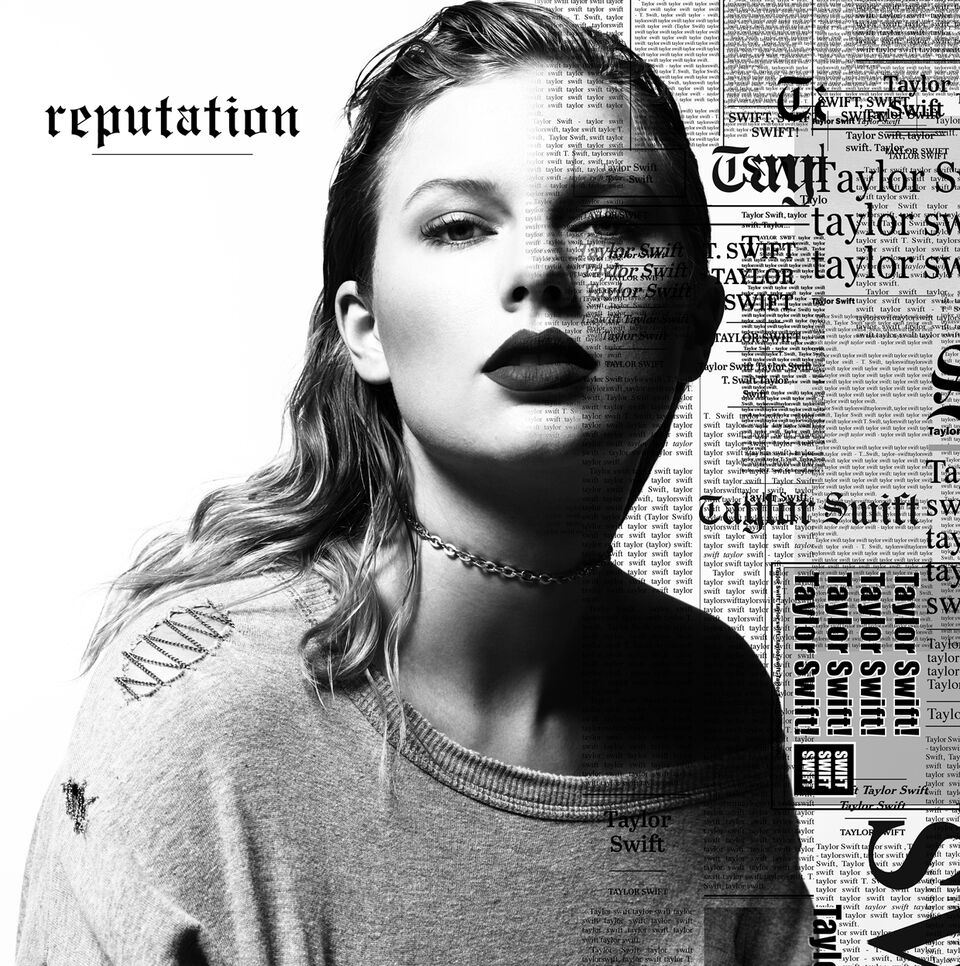
‘Reputation’ album review
By Joshua Toevs, Columnist
1/5
There is always this want or desire to be popular or relevant. You see this happen often in high school where kids will try to change themselves to fit in with what is trendy or popular, while usually stripping away what actually makes them who they are. On Reputation, Taylor Swift attempts to do this from a musical standpoint and for the most part fails to find her footing in the ever-evolving world of popularity.
This album is the follow up to 1989. On that album, Swift took synth pop into the stratosphere, crafting a fun albeit predictable chart-topper. However, in the years since that release, the chart landscape has changed to feature more trap-style production and definitely a lot more hip-hop records charting high. With this in mind, Swift attempts to meet these new standards of success. Gone are the gooey guitar strings and glitzy piano arrangements, being replaced with snappy 808 drums, deep sub, and more hip-hop-leaning melodies. This results in a darker tone, new to Swift’s repertoire, and while it is cool to see her step out and try something new, the results are not great. On Reputation, a lot of the music comes off as forced and disingenuous, which is a big no-no when dealing with anything resembling hip-hop.
That isn’t to say that there aren’t interesting or positive results on the album. On the standout track, “End Game,” Swift is at her most confident and even shows off a little bit of swag as she talks about wanting to be the be-all, end-all for the guy in her life. Swift sounds lyrically charged and vocally loose, which blends well with the bombastic drums and in-your-face percussion that swirls around the vocals throughout. The features on this song are fantastic, with Future dropping his most coherent verse ever while Ed Sheeran shows off a bouncy flow as he effortlessly works the beat to perfection. “Getaway Car” is a nice change of pace track on this record as the production incorporates ’80s synth grooves with more modern electronic samples. The record sees Swift speaking about a love that was never going to be a long-term thing. Her vocals on this song are surprisingly powerful, since she isn’t the greatest when it comes to showing off her vocal range.
Now that the positives are out of the way, it is time to get to some of the flaws of this album. Lyrically, this record is a mess. On her previous efforts, Swift definitely plays the victim when it comes to romance, but she mixes that with some witty lines that provide a redeeming quality. On this album however, Swift spends a lot of time throwing a pity party for herself. She even has a song titled “Don’t Blame Me” in which she talks about how her flaws aren’t her fault. The lyrics will really leave you rolling your eyes as the subject matter becomes redundant.
Swift’s choice of singles is also quite baffling—with the exception of “…Ready for It?” which features a bone-rattling sub-bass mixed with an unassuming piano melody that helps prop up Swift’s off-beat flow and average lyrics. While that single was decent, the rest of them are head scratchers. “Gorgeous” sounds like Swift going back to the well to try and recreate older hits akin to singles like “Love Story,” but with diminishing returns. The song is filled with bland lyrics and even more bland production. “Call it What You Want” is mundane as a whole and really doesn’t bring anything surprising or interesting, either good or bad, to warrant any kind of response. The biggest blunder however is the lead single, “Look What You Made Me Do,” a song that samples Right Said Fred’s “I’m Too Sexy” so blatantly that there is little effort to make this song sound like its own entity. The added melodies are barren of any emotion or power, and Swift makes matters worse with her anemic flow and terrible lyrics. It is easily her worst single ever and perhaps one of the worst singles of all time.
At the end of the day Taylor Swift attempted something out of her element. She took all the cool elements of hip-hop and black culture and attempted to keep up with the current chart trends. Unfortunately, her attempt comes off as appropriation of the culture more than anything. Sonically Swift stumbles throughout, and every sound and lyric that she tries to pass off as new and edgy is blander than anything. If the old Swift is dead and this is the version taking her place, then we may need to find a time machine to help bring the old version back to life.


